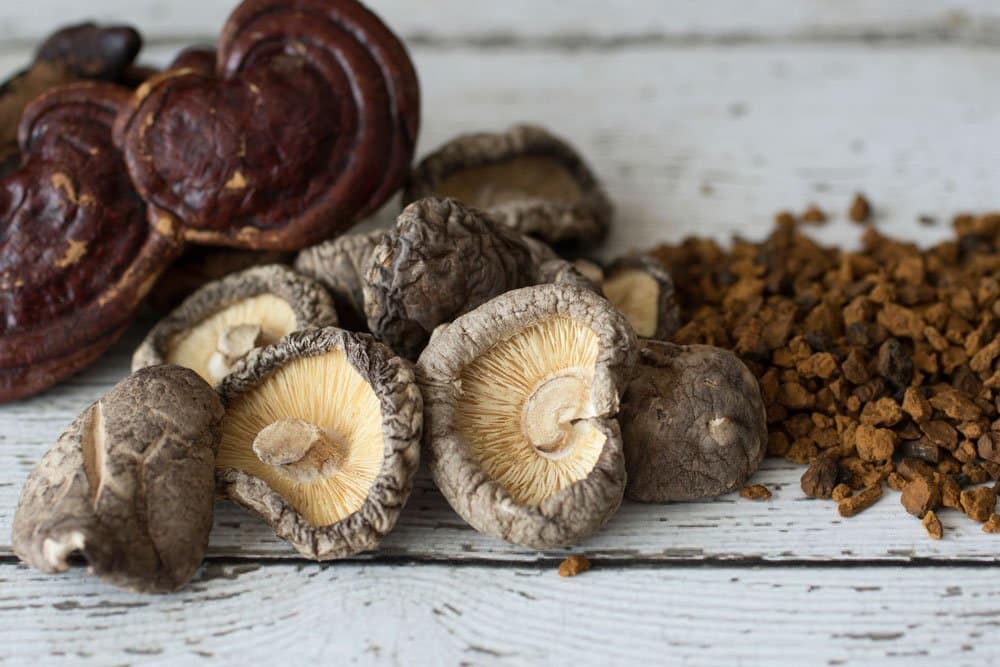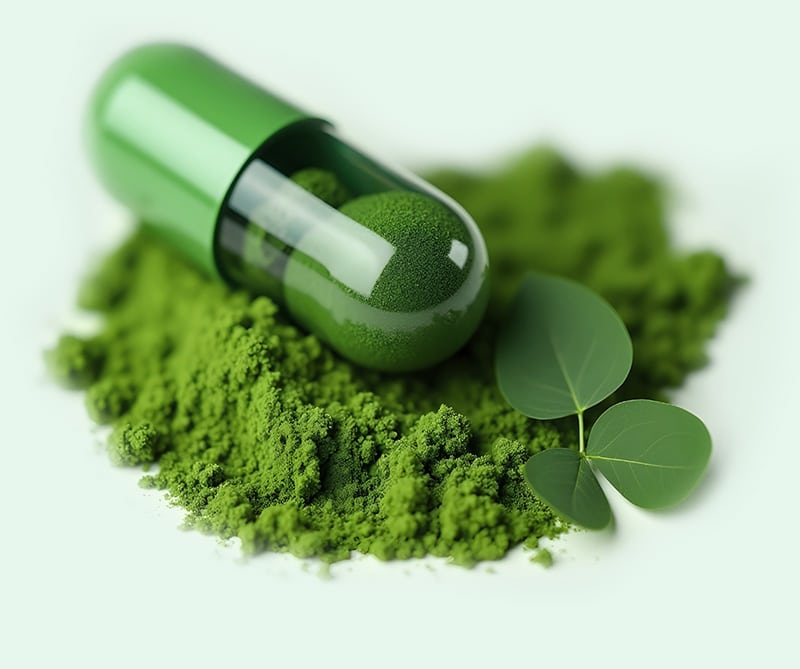The wonders of medicinal mushrooms
Some types of mushrooms have many healing effects, so in modern times they are known as medicinal mushrooms. In fact, this is not a new discovery, as they have been used for medicinal purposes for millennia before us. These include: maitake, shiitake, reishi and many others.
Mushrooms have been used for medicinal purposes for a long time. The first records date back to 4000 years ago in China and Japan. They are used to treat many diseases, including cancer. These mushrooms are also used for colds, flu, arthritis and diabetes.
It all depends on the kind of mushroom we choose, how much they are concentrated, whether they are natural, without additives, whether we take enough vitamin C, and so on. Every cancer patient should try medicinal mushrooms. Why?
They have many health benefits
The most important ingredients in these mushrooms are polysaccharides, among which beta glucans stand out for their healing effect. Different types of mushrooms contain different forms of beta glucans. In traditional medicine, they have been used primarily as antibacterial, antiviral and immunomodulatory herbs. Researches over the past twenty years have shown that they have immunomodulatory activity, inhibiting the growth and development of cancer, lowering cholesterol levels, acting as an antioxidants and reducing high blood pressure. It is important to mention that unlike modern methods of cancer treatment (chemotherapy, radiation, hormone therapy, surgery) medicinal mushrooms do not have acute and chronic toxicities and do not cause immunogenic, allergic and anaphylactic reactions. Only people who are sensitive to house mould allergens should be careful when consuming medicinal mushrooms.
Medicinal mushrooms contain bioactive substances, mainly in the form of complex polysaccharides (alpha and beta glucans), which activate T lymphocytes (macrophages, killer T cells) due to their high branching and thus activate the immune system. Some of them are ranked among the most effective adaptogens today. An adaptogen is an agent that is non-toxic and has no side effects, but at the same time acts on the whole body by normalizing its processes (e.g. if the body parameter is high or low, the adaptogen brings it closer to normal). Undoubtedly, some mushrooms have beneficial healing effects, including: antibiotic, antiviral and antifungal action, lowering blood pressure, lowering blood fat, antitumor action in terms of inhibiting the growth of cancer cells, promoting T cell and natural killer cells production, treating infections, influenza, diabetes, heart disease and immune disorders, and so on. Health legislations in Europe and the United States classify medicinal mushroom preparations as dietary supplements, while in Japan the term “functional nutrition” (FOSHU Food for Specific Health Use) is being used. The fact that most of them are classified as dietary supplements is due to the fact that (as well as other natural foods in general) it is difficult to patent them.
Maitake (Grifola fondoza)
On Japanese language it means “dancing mushroom”, probably because people danced with joy when they found this rare and highly prized mushroom. In the Far East, it is valued as a medicinal plant that increases resilience and contributes to longevity. Maitake contains active polysaccharides that are powerful immune system boosters. When treating cancer the maitake mushroom works by activating cellular immunity, preventing carcinogenesis in normal cells, inhibiting tumour growth, preventing tumour metastasis, alleviating the side effects of chemotherapy and regulating endocrine gland function. It does not destroy cancer cells directly, but by activating the immune system it stimulates the body to defend itself.
Reishi (Ganoderma lucidum)
The reishi mushroom in Slovenia is known as “svetlikava pološčenka”, and its Latin name is Ganoderma lucidum. In China, it is known as the “mushroom of immortality”. It is considered one of the most prized plants. Six species are known, each of which has its own characteristics and healing effects. It is also found in our forests. It grows mainly on dead wood in deciduous forests, especially on oak and chestnut stumps. Ganoderma lucidum contains many active substances, the most effective of which are polysaccharides, triterpenes and organic germanium. They act synergistically and strengthen the immune system, inhibit the growth and development of altered cells, and in addition protect the liver. The main active ingredient against cancer are polysaccharides that bind to amino acids, activating the so called lymphoid T cells, which regulate body’s immune responses. Regarding cancer, reishi works in the following ways:
- It detoxifies the body, helps increase and regulate the immune and endocrine systems, protects against tumours, improves blood circulation and removes harmful free radicals, and limits the cancer cell proliferation. It can limit the side effects of chemotherapy and radiation.
- It detoxifies the liver, thus improves its functioning and promotes the regeneration of liver cells.
- Increases appetite and relieves the pain in the last stage of cancer.
Shiitake (Lentinus edodes)
Shiitake is a highly prized mushroom. Traditional Chinese medicine has been using it for millennia. The experience of traditional medicine, supported by many modern researches, shows that shiitake speeds up the functioning of the liver and protects it from damage. Shiitake is also beneficial for the heart and blood vessels, as it reduces the increased level of total cholesterol, and improves the ratio of LDL- and HDL-cholesterol. In addition, Shiitake mushrooms dilute the blood and lower blood pressure, so regular consumption of these mushrooms supports heart function. Special attention has been paid due to their stimulating effect on the immune system. In research that has been going on for more than three and a half decades, they have been shown to have an inhibitory effect on cancer with its most effective ingredient – shiitake lentinan. With the support of some other ingredients, Shiitake also has a preventive effect and inhibits the action of carcinogens. Because of its antiviral effects, research has been conducted on mycelial extracts, which have shown encouraging results in the treatment of AIDS. In addition, some ingredients of shiitake have antifungal and antibacterial effects.

